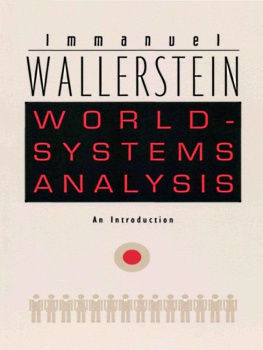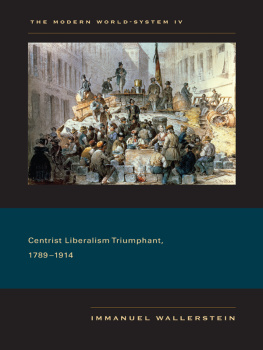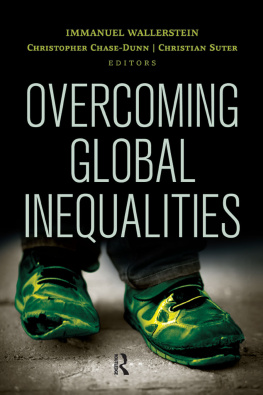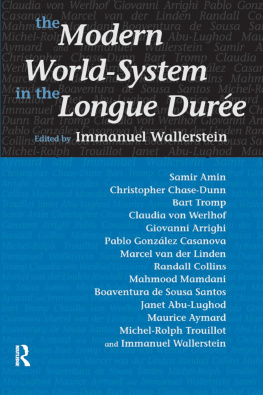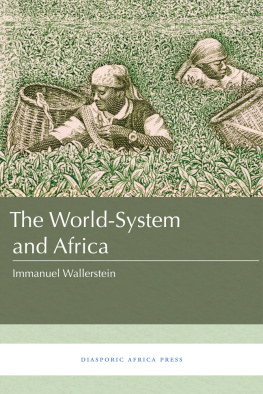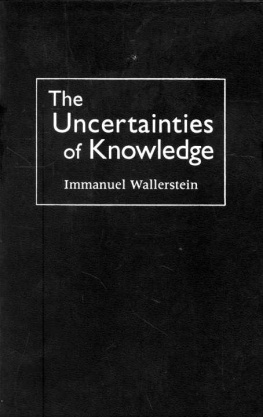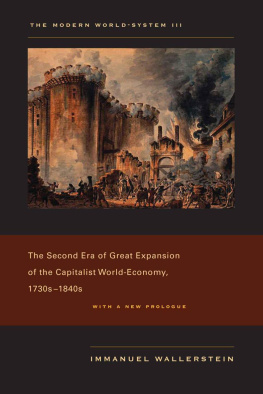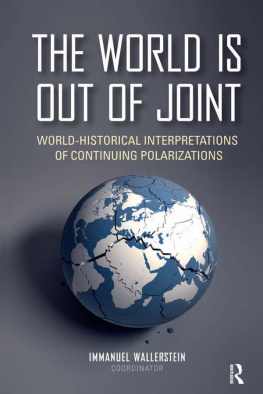Immanuel Wallerstein - World-Systems Analysis: An Introduction
Here you can read online Immanuel Wallerstein - World-Systems Analysis: An Introduction full text of the book (entire story) in english for free. Download pdf and epub, get meaning, cover and reviews about this ebook. City: Durham, year: 2012, publisher: Duke University Press, genre: Politics. Description of the work, (preface) as well as reviews are available. Best literature library LitArk.com created for fans of good reading and offers a wide selection of genres:
Romance novel
Science fiction
Adventure
Detective
Science
History
Home and family
Prose
Art
Politics
Computer
Non-fiction
Religion
Business
Children
Humor
Choose a favorite category and find really read worthwhile books. Enjoy immersion in the world of imagination, feel the emotions of the characters or learn something new for yourself, make an fascinating discovery.
- Book:World-Systems Analysis: An Introduction
- Author:
- Publisher:Duke University Press
- Genre:
- Year:2012
- City:Durham
- Rating:5 / 5
- Favourites:Add to favourites
- Your mark:
World-Systems Analysis: An Introduction: summary, description and annotation
We offer to read an annotation, description, summary or preface (depends on what the author of the book "World-Systems Analysis: An Introduction" wrote himself). If you haven't found the necessary information about the book — write in the comments, we will try to find it.
In World-Systems Analysis, Immanuel Wallerstein provides a concise and accessible introduction to the comprehensive approach that he pioneered thirty years ago to understanding the history and development of the modern world. Since Wallerstein first developed world-systems analysis, it has become a widely utilized methodology within the historical social sciences and a common point of reference in discussions of globalization. Now, for the first time in one volume, Wallerstein offers a succinct summary of world-systems analysis and a clear outline of the modern world-system, describing the structures of knowledge upon which it is based, its mechanisms, and its future.
Wallerstein explains the defining characteristics of world-systems analysis: its emphasis on world-systems rather than nation-states, on the need to consider historical processes as they unfold over long periods of time, and on combining within a single analytical framework bodies of knowledge usually viewed as distinct from one anothersuch as history, political science, economics, and sociology. He describes the world-system as a social reality comprised of interconnected nations, firms, households, classes, and identity groups of all kinds. He identifies and highlights the significance of the key moments in the evolution of the modern world-system: the development of a capitalist world-economy in the sixteenth-century, the beginning of two centuries of liberal centrism in the French Revolution of 1789, and the undermining of that centrism in the global revolts of 1968. Intended for general readers, students, and experienced practitioners alike, this book presents a complete overview of world-systems analysis by its original architect.
ReviewAt a time when globalization is at the center of international debate from Davos to Porto Alegre, an introduction to world-systems analysis, an original approach to world development since the sixteenth century, is timely and relevant. This is a lucidly written and comprehensive treatment of its origins, controversies, and development by Immanuel Wallerstein, its undoubted pioneer and most eminent practitioner.Eric Hobsbawm, author of Interesting Times: A Twentieth-Century Life and The Age of Extremes: A History of the World, 19141991
Immanuel Wallersteins mind can reach as far and encompass as much as anyones in our time. The world, to him, is a vast, integrated system, and he makes the case for that vision with an elegant and almost relentless logic. But he also knows that to see as he does requires looking through a very different epistemological lens than the one most of us are in the habit of using. So his gift to us is not just a new understanding of how the world works but a new way of apprehending it. A brilliant work on both scores.Kai Erikson, William R. Kenan Jr. Professor Emeritus of Sociology and American Studies, Yale University
About the AuthorImmanuel Wallerstein is a Senior Research Scholar at Yale University and Director of the Fernand Braudel Center at Binghamton University. Among his many books are The Modern World-System (three volumes); The End of the World as We Know It: Social Science for the Twenty-first Century; Utopistics: Or, Historical Choices of the Twenty-first Century; and Unthinking Social Science: The Limits of Nineteenth-Century Paradigms. He is the recipient of the American Sociological Associations Career of Distinguished Scholarship Award and is a former president of the International Sociological Association.
Immanuel Wallerstein: author's other books
Who wrote World-Systems Analysis: An Introduction? Find out the surname, the name of the author of the book and a list of all author's works by series.

